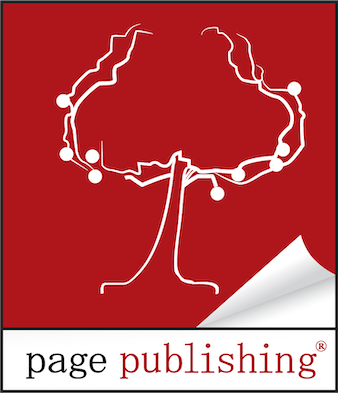
Make Your Idea Come to Life
It can be overwhelming if you have an idea for a book but don’t know where to start. However, with some planning and organization, you can turn your vision into reality. The key is to take it one step at a time and be patient with yourself. Writing a book requires time, effort, and dedication but can be rewarding. With hard work and persistence, you can be a published author and share your book with the world.
Here are some steps you can take to turn your idea into a published book:
- Develop your idea: Take some time to think about your vision and what you want to write about. Then, consider your book’s audience and what you want to achieve.
- Create an outline: Organize your ideas and thoughts into an outline to help guide your writing process. It will help you stay on track and ensure your book has a clear structure and flow.
- Write your book: Set aside dedicated writing time and stick to a regular schedule. Set writing goals for each session to keep yourself motivated.
- Edit your work: Once you’ve finished writing, it’s essential to take the time to review and revise your work. It may involve seeking feedback from others, such as a writing group or a professional editor.
- Consider self-publishing, hybrid, or traditional publishing: Each has pros and cons. Consider which option is the best fit for you based on your goals and resources.
- Prepare your manuscript: If you choose to pursue traditional publishing, you’ll need to prepare your manuscript for submission to agents or publishers. It may involve formatting your manuscript to meet industry standards and writing a query letter to pitch your book.
- Marketing and promoting your book: Once published, you’ll want to promote it to reach as many readers as possible. It may involve building an online presence, giving readings or talks, or participating in book festivals or other events.
Develop your idea
Developing your idea is an important first step in the process of turning your idea into a published book. It involves taking some time to really think about what you want to write about and why. Consider your audience and what you hope to achieve with your book. It is also helpful to do some research to ensure that your idea is feasible and that there is a market for it. As you develop your concept, it can be helpful to jot down notes and brainstorm ideas to help you better understand your topic and what you want to say. Don’t be afraid to be creative and think outside the box – sometimes, the best ideas come from unexpected places. As you develop your idea, staying focused and persistent is essential, as this is the foundation upon which you will build your book.
Create an outline
An outline is a valuable tool for organizing your ideas and thoughts as you begin to write your book. It helps to give your writing a clear structure and flow and can make the writing process more efficient and effective. To create an outline for your book, brainstorm the main points and ideas you want to cover. Next, think about the purpose of your book and what you want to achieve with it. Then, group your ideas into broad categories or chapters. From there, break each chapter into smaller sections or points you wish to cover. As you create your outline, use subheadings and bullet points to help organize your thoughts and make it easier to read.
Once you have your outline, you can use it as a roadmap for your writing process. It will help you stay focused and ensure your book has a clear, logical structure. You can also use your outline to track your progress and see how far you have come and what still needs to be done. Remember that your outline is a starting point. You may need to revise and adjust it as you begin writing and your ideas evolve. However, having an outline can be a helpful way to stay organized and on track as you work on your book.
Write your book
Writing your book is crucial in turning your idea into a published work. It requires dedication, discipline, and hard work. When you begin writing your book, setting aside dedicated writing time and sticking to a regular schedule is helpful. It can help you stay focused and motivated as you write. Set writing goals for each session, such as a certain number of words or pages, to help you track your progress and stay on track. As you write, remain true to your voice and vision for the book. Don’t be afraid to revise and edit as you go. It will help you produce a stronger, more polished final product. Finally, remember to take breaks and give yourself time to rest and recharge – writing a book can be a marathon, not a sprint.
Edit your work
Editing your work is essential in turning your idea into a published book. It’s important to take the time to review and revise your writing to ensure that it is the best it can be. It may involve seeking feedback from others, such as a writing group or a professional editor. As you edit your work, pay attention to grammar, spelling, punctuation, and clarity issues. Make sure that your writing is well-organized and easy to follow. Consider whether any sections need to be cut or expanded, and consider how to improve your book’s overall flow and structure. Don’t be afraid to make changes and take the time to get your work just right – the effort you put in now will pay off in the end. Editing and revising your manuscript may require a lot of time and effort, but it’s an important step that will help ensure that your book is the best it can be.
Consider self-publishing or traditional publishing
Once you have completed writing your book, you must decide how to publish it. There are three main options: self-publishing, hybrid, or traditional publishing. Self-publishing involves publishing your book yourself without the support of a traditional publishing house. It can be a good option if you want complete control over the publishing process and are willing to invest the time and resources to do it yourself. However, it can also be more challenging, as you’ll be responsible for all aspects of the process, including editing, formatting, design, marketing, and distribution. Traditional publishing involves having your manuscript accepted by a publishing house, which will go through the publishing process with you. It can be a good option if you want the support and resources of a publishing house, but you’ll only get a fraction of the royalties and give up some control over the final product. Lastly, hybrid publishing combines the best parts of self-publishing with the resources of a traditional publishing house. It gives you creative control, most of your royalties, and someone else handles the technical aspects of publishing. As you consider your options, consider your goals, resources, and what will best fit you and your book.
Prepare your manuscript
If you decide to pursue traditional publishing, you must prepare your manuscript for submission to literary agents. It involves ensuring that your manuscript meets industry standards for formatting and style. Some specific things to consider when finalizing your manuscript for submission include the following:
- Font and font size: Use a standard, easy-to-read font such as Times New Roman or Arial, and ensure your font size is consistent throughout the document.
- Margins: Set your margins to at least one inch on all sides.
- Line spacing: Use double line spacing to make your manuscript easier to read.
- Page numbers: Include page numbers in each page’s top or bottom corner.
- Paragraphs: Indent the first line of each paragraph by half an inch, and do not add extra space between paragraphs.
- Headings: Use clear, descriptive titles to help break up the text and make your manuscript easier to read.
It’s also a good idea to have a few people review your manuscript to catch any errors or typos before you submit it. Then, once your manuscript is ready, you’ll be prepared to start the submission process.
Marketing and promoting your book
Marketing and promoting your book are essential to getting your book in front of readers. You can use many different strategies to promote your book, and the best approach will depend on your goals, resources, and target audience. Some ideas for promoting your book include:
- Building an online presence by setting up a website and creating social media accounts
- Giving readings or talks at bookstores, libraries, schools, or other venues
- Participating in book festivals or other events
- Partnering with bookstores or other retailers to promote your book
- Using paid advertising such as online ads, print ads, or radio or television ads
- Offering promotions or discounts to encourage readers to try your book
Remember, being proactive and creative is the key to promoting your book. Don’t be afraid to try different approaches and see what works best for you and your book. By putting effort into marketing and promoting your book, you can increase your chances of success and reach a wider audience.
Turning your idea into a published book requires hard work, dedication, and a willingness to take risks. However, by following the steps outlined above, you can increase your chances of success and achieve your dream of seeing your work in print.
